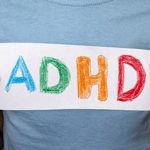
Working out offers a lot of health benefits, and the risks are astonishingly small, according to a new study from the United Kingdom. “This work demonstrates that engaging in fitness activities is overwhelmingly a safe and beneficial pursuit,” said study co-author Dr. Sean Williams, a researcher at the University of Bath Center for Health and Injury and Illness Prevention in Sport. “While no physical activity is entirely without risk, the chance of serious injury is exceedingly low when compared to the myriad health and wellness advantages gained from staying active,” Williams continued in a university news release. The five-year study found that even forms of exercise sometimes considered risky by the public, such as road cycling, are generally safe. Data for the study came from hospitals in England and Wales. The researchers found that between 2012 and 2017, nearly 12,000 trauma injuries resulted from sports and exercise. The study looked at 61 sports and other physical activities to provide a comparable estimate of the risks to participants. Running, golf, dance classes and gym sessions were the least likely to result in injury. Running had in 0.70 injuries, golf 1.25 injuries and fitness classes just 0.10 per 100,000 participants a year. Among the most popular sports, soccer had the highest injury incidence rate at 6.56 injuries per 100,000 participants a year. The authors characterized this as… read on > read on >


















